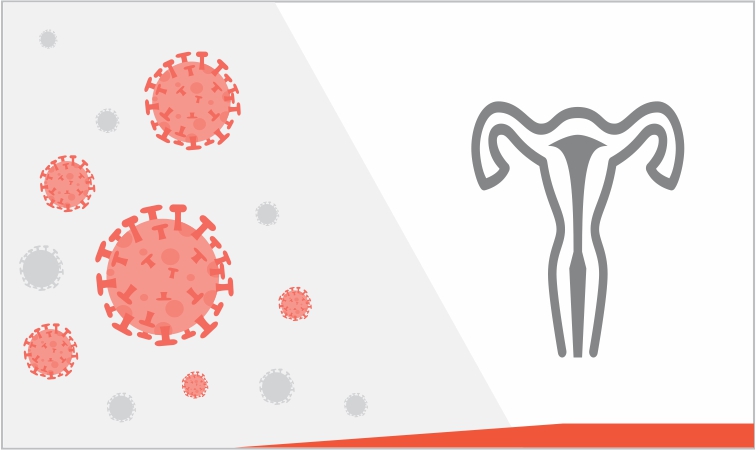Polycystic ovary syndrome (PCOS) and COVID-19

The COVID-19 pandemic has had a major effect on the world, and everyone is fearful and anxious as they face this difficult situation. These challenges have a significant impact on the population's overall physical and mental well-being, especially among women. It is well established that stress levels majorly impact affect hormones, which are closely linked to menstrual cycle irregularities, which may lead to disease predisposition.
What is PCOD?
PCOD (Polycystic Ovary Disease) is a hormonal condition that affects many women of reproductive age. Women with this health problem grow cysts in their ovaries, which may lead to infertility problems. PCOD can cause weight gain, hair loss, irregular periods, acne, and other issues. The number of women affected by this condition has risen significantly in recent years all over the world. According to statistics, one in every five (20%) women of childbearing age in India suffer from a hormonal disorder.
What factors contribute to the risk?
Health conditions associated with PCOD include type 2 diabetes, non-alcoholic fatty liver disease, and high blood pressure, all of which have been reported as COVID-19 risk factors. These metabolic health issues can exacerbate infection severity and danger. Extreme COVID-19 is also related to hyper inflammation, low vitamin D levels, and hyperandrogenism (excess male hormones), all of which have been linked to PCOD.
What can women with PCOD do to avoid serious COVID-19?
It is important for women with PCOD to maintain contact with their treating doctor/gynecologist and seek medical advice if they experience any symptoms. It is important to be aware of the signs and to keep a close eye on them. Here are a few short reminders to keep your health in check amidst the pandemic.
- It is recommended to manage your time by creating practical and achievable schedules while keeping self-care in mind.
- Wellness should be ensured during the COVID-19 crisis by remaining concentrated, calm, and optimistic.
- Obesity and other related co-morbidities can be managed by maintaining a healthy lifestyle that includes consuming a balanced diet and avoiding unnecessary fast food.
- Sugar-restricted, low-carbohydrate, high-protein foods and plenty of fresh fruits and vegetables should be included in the diet.
- There are various online fitness classes and regimes to choose from. Creating a physical exercise routine allows for optimal weight control and mental well-being.
More research is required to determine the precise relationship between conditions like PCOD, which can significantly increase the risk of extreme COVID-19-related outcomes. Untill then, to prevent the spread of COVID-19, people must adhere to strict social distancing norms, wash their hands regularly, and wear a mask.






